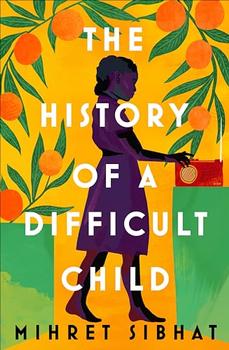Summary | Excerpt | Reading Guide | Reviews | Beyond the Book | Readalikes | Genres & Themes | Author Bio

A Novel
by Mihret Sibhat
You just sit there instead, wrapped in your father's gabi, wishing and wishing for enough water to wash the poster into the gutter at the edge of the road, and it doesn't even take a minute for that to happen. Here in the southwest, there's enough water to wash away a whole country's transgressions. You pray in your heart for the poster not to appear somewhere it shouldn't and get your family in trouble. You pray for even more: you hope the blue you just saw isn't the blue of the poster; that the poster remains buried in the backyard. You can't wait for the rain to subside so that you can go check the grave.
You watch the flood in the gutter take everything on its way—more pieces of paper, plastic bags, somebody's rubber shoe, eroded soil, orange-tree leaves, small balls made of old socks stuffed with pieces of fabric and sponges—and rush past Zinash Hotel, past the offices of the Workers' Party of Ethiopia, past the police station, past the only high school in town and a line of shops selling sugar and lentils and frankincense, and past the big billboard of Marx, Engels, and Lenin welcoming visitors to town, to turn everything over to a small river some five kilometers away, like a dutiful boy who's been running errands for his mother.
The Small River takes all those things and more—a broken plastic doll, tree branches, a third-grade math book, a dead animal's carcass, more eroded soil—and runs along at the feet of densely forested mountains, to the Medium River some thirty two kilometers away. The Medium River does the same: it takes everything from the Small River and adds bigger things—tree trunks, a portion of someone's house, a human body that had slipped through the cracks of one of the many shaky bridges in the area—and goes to give it to the Big River some two hundred kilometers away, like a middleman collecting bribes on behalf of an important official. The Big River takes what all the small and medium rivers of the region deposit in it—except for many of the corpses that wash up along the way—and starts cutting northwest through valleys, like the river is a blade and the land under it a holiday sheep being skinned, eventually passing over everything to the Blue Nile.
Finally, the Blue Nile takes it all and more—tons and tons of eroded soil containing invaluable minerals; all the lyrics farmers of its home province had sung for it for centuries; a photograph of a family gathered at the back of their house, staring at the camera's eye—and heads west, like a lover rushing to meet his mistress before a day's end. Or maybe like a deserter headed to the border on a horse, to defect to foreign invaders like the Sudanese, the Egyptians, the Turks, the Italians, and many others who have given this land so much grief throughout history. The Blue Nile leaves its home and meets the White Nile in the Sudan, where the two conspire every day to take Ethiopia's things and turn them over to the fucking Egyptians.
That's what the radio said.
From The History of a Difficult Child, used with the permission of the publisher, Viking. Copyright © 2023 by Mihret Sibhat.
Your guide toexceptional books
BookBrowse seeks out and recommends the best in contemporary fiction and nonfiction—books that not only engage and entertain but also deepen our understanding of ourselves and the world around us.